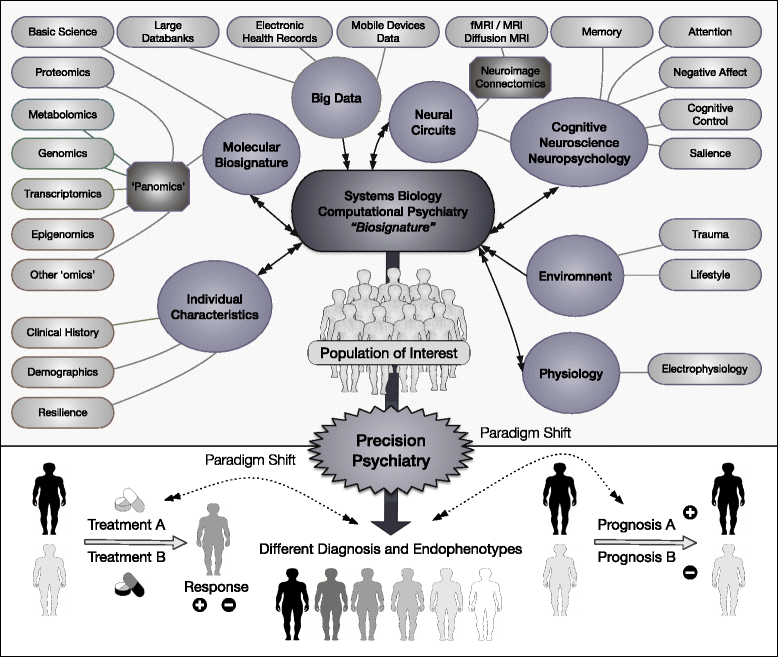The new field of 'precision psychiatry'
- PMID: 28403846
- PMCID: PMC5390384
- DOI: 10.1186/s12916-017-0849-x
The new field of 'precision psychiatry'
Abstract
Background: Precision medicine is a new and important topic in psychiatry. Psychiatry has not yet benefited from the advanced diagnostic and therapeutic technologies that form an integral part of other clinical specialties. Thus, the vision of precision medicine as applied to psychiatry - 'precision psychiatry' - promises to be even more transformative than in other fields of medicine, which have already lessened the translational gap.
Discussion: Herein, we describe 'precision psychiatry' and how its several implications promise to transform the psychiatric landscape. We pay particular attention to biomarkers and to how the development of new technologies now makes their discovery possible and timely. The adoption of the term 'precision psychiatry' will help propel the field, since the current term 'precision medicine', as applied to psychiatry, is impractical and does not appropriately distinguish the field. Naming the field 'precision psychiatry' will help establish a stronger, unique identity to what promises to be the most important area in psychiatry in years to come.
Conclusion: In summary, we provide a wide-angle lens overview of what this new field is, suggest how to propel the field forward, and provide a vision of the near future, with 'precision psychiatry' representing a paradigm shift that promises to change the landscape of how psychiatry is currently conceived.
Keywords: Big data; Biomarkers; Omics; Personalised medicine; Precision medicine; Precision psychiatry; Research domain criteria; Systems biology.
Figures

Comment in
-
Precision psychiatry: Promises made-Promises to be kept?Aust N Z J Psychiatry. 2019 Sep;53(9):841-843. doi: 10.1177/0004867419849482. Epub 2019 May 17. Aust N Z J Psychiatry. 2019. PMID: 31096776 No abstract available.
References
-
- Toward Precision Medicine . Building a Knowledge Network for Biomedical Research and a New Taxonomy of Disease. National Research Council Committee on a Framework for Developing a New Taxonomy of Disease. Washington, DC: National Academies Press; 2011. - PubMed
MeSH terms
LinkOut - more resources
Full Text Sources
Other Literature Sources
Miscellaneous

